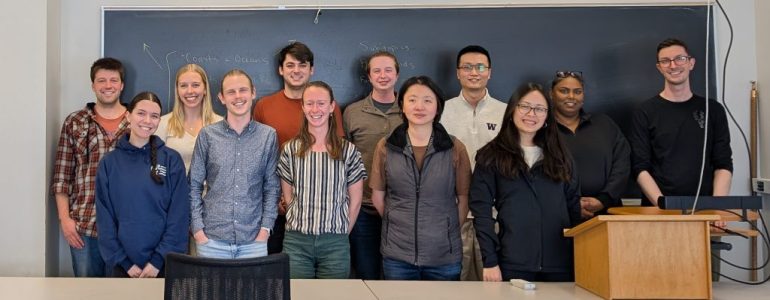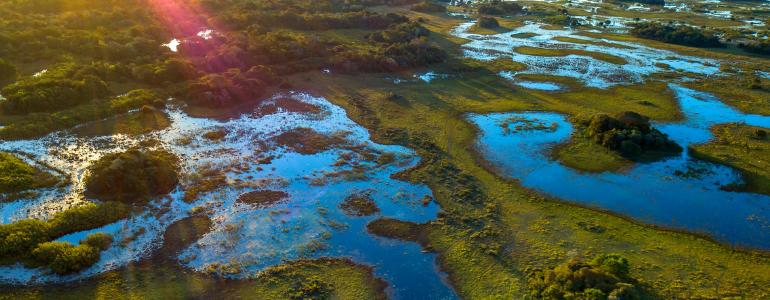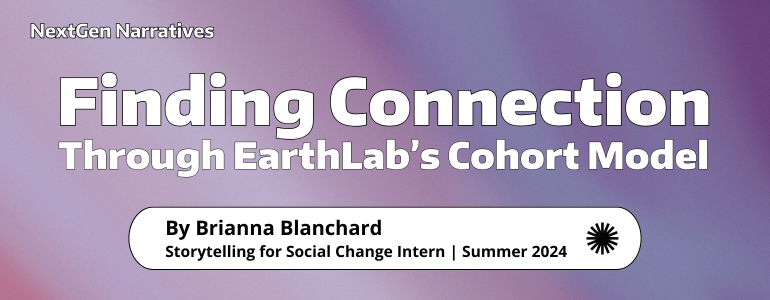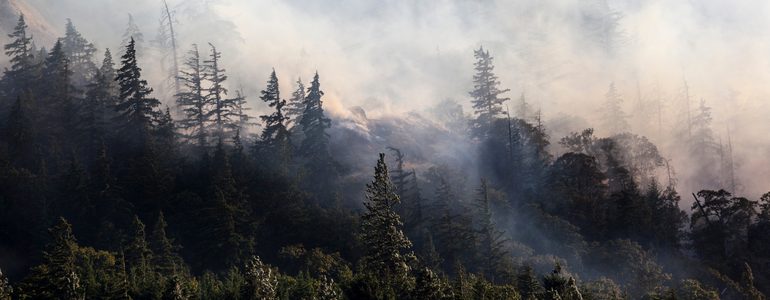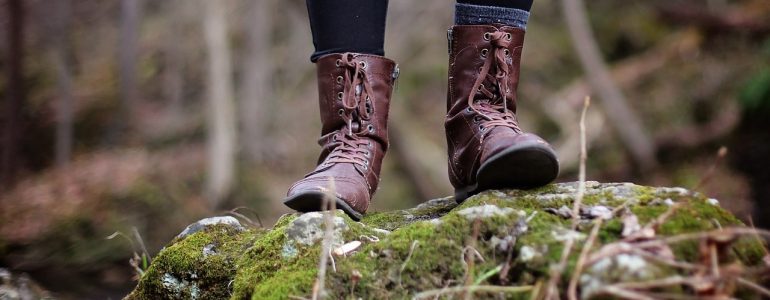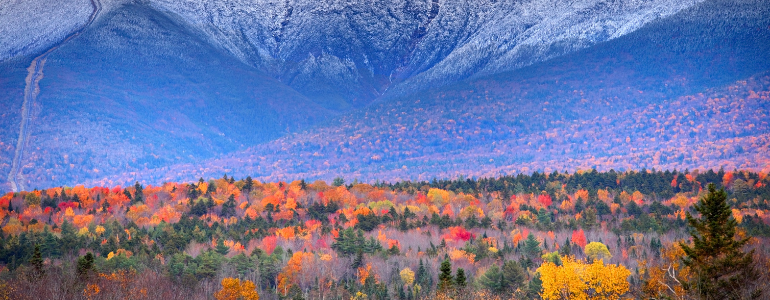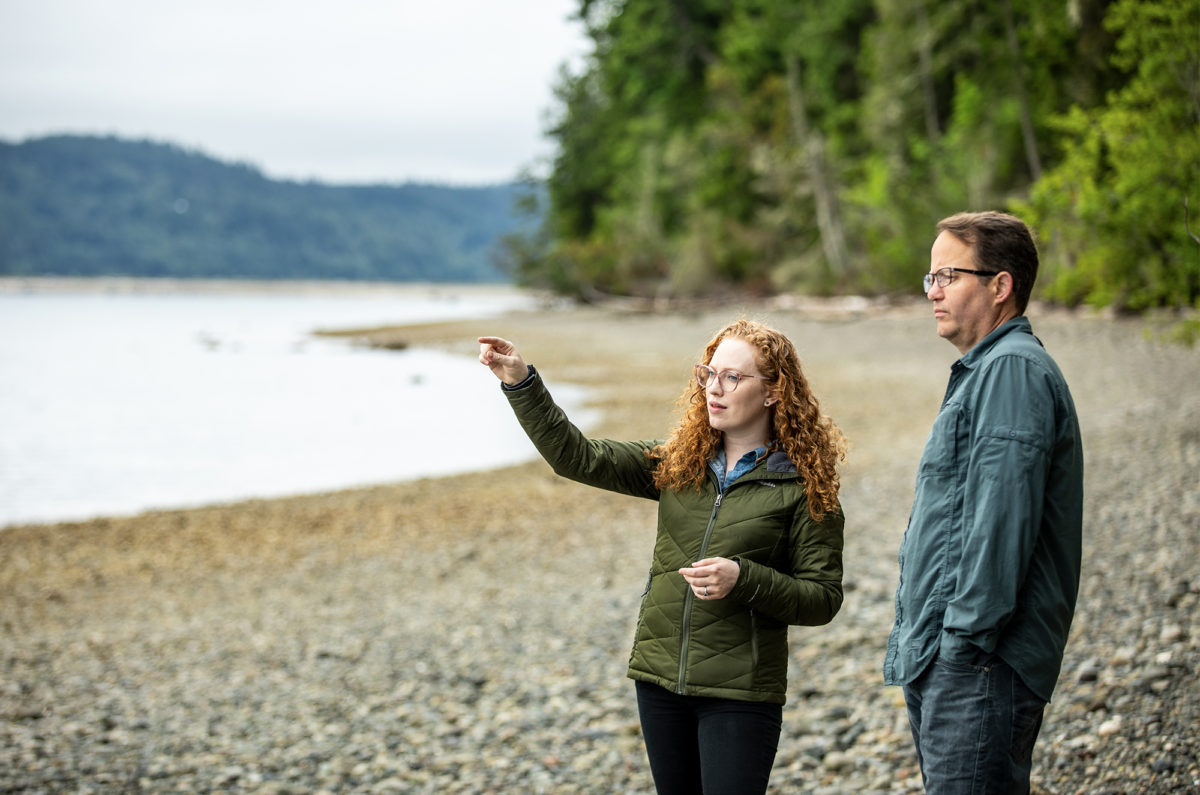EarthLab News
Announcing the PNW Climate Ambassadors: Building capacity for public climate conversations
How do scientists develop confidence and experience having conversations with the general public around climate science, global and local impact, and solutions when their areas of expertise are in a disciplinary science such as oceanography or urban planning? In Fall 2024, the Program on Climate Change (PCC), and the Washington State Climate Office (WASCO), set out to create a training program that would help develop the capacity for graduate students to do just that, and to serve as a community resource on climate science and solutions.
Read moreWildfire communication gaps persist for Spanish speakers in Washington. These groups are working to close them.
As wildfire seasons grow longer and more intense across Washington state, advocates are working to ensure that non-English speakers, many of them migrant or seasonal workers, are not left behind during climate emergencies.. Featuring Maria Blancas and the Community and Climate Impact Hub, a project funded by the EarthLab Innovation Grant Program
Read moreMicrosoft's AI for Good Lab awards UW-TealWaters team for new wetland mapping technology
Microsoft’s AI for Good Lab awarded TealWaters one of 20 grants who will receive a combined $5 million in assistance over the next two years for "game-changing organizations and projects helping solve today's challenges and paving the way for a better future."
TealWaters, an EarthLab partner, is a multidisciplinary collaboration, co-led by UW scientists Monika Moskal and Meghan Halabisky, to transform Washington state's water management capacity by providing tools that inform and guide wetlands planning, protection, and restoration. TealWaters plans to support AI model testing beyond the scope of its existing tools to increase communities' resilience to climate change and environmental stressors.
Read moreFinding Connection Through EarthLab’s Cohort Model
By Brianna Blanchard
Storytelling for Social Change Intern, Summer 2024
I was a sophomore in high school when the 2020 lockdown happened. Now that I am almost done with my junior year at the University of Washington, I’ve had lots of time to reflect on what the last five years have taught me about isolation, connection, and the importance of community.
Climate Impacts Group Update: Federal Funding Uncertainty and Potential Program Impacts
The Climate Impacts Group has helped make communities, Washington state, and the Pacific Northwest more resilient to extreme weather events, climate variability, and climate change over the past 30 years. Federal funding uncertainty poses a risk of losing half of all funding that supports this group.
Read moreBuilding climate resilience in north-central Washington: New tools for a safer summer
As sunny days and warmer weather return to Washington state, so too do the risks of wildfire season. Rural communities across central Washington know these realities all too well: in 2021, over 50% of the acres burned in wildfires across the entire state happened in Chelan and Okanogan counties alone. Yet, many communities lacked access to responsive, accessible health messaging around what to do or how to stay safe during wildfires.
Read moreEarthLab's Second Annual Spring Showcase
On Thursday, April 10th, the UW Center for Urban Horticulture was buzzing with over 100 EarthLab friends, partners, and supporters for the second annual EarthLab Spring Showcase. Across the different backgrounds, disciplines, and experiences of the attendees in the room, the evening was a powerful reminder of the strength we have when we come together in pursuit of climate solutions.
The evening’s programming began with opening remarks from University of Washington and EarthLab leadership.
Q&A: UW researchers examine mental impact of Girl Scouts’ interactions with nature
New research from the University of Washington Center for Nature and Health, recently published in the Journal of Environmental Education, examined whether children’s interactions with nature that are embodied, rather than just visual, are associated with being in the moment and feeling connected to something beyond the self.
Read moreWASCO, CIG & Partners Publish Pacific Northwest 2024 Water Year Impacts Assessment
The fifth Pacific Northwest Water Year Impacts Assessment, released today, presents a detailed examination of seasonal climate conditions across Washington, Oregon, and Idaho for the 2024 water year (October 1, 2023–September 30, 2024). The Pacific Northwest Water Year Impacts Assessment is produced through a collaboration between the Washington State Climate Office, the Climate Impacts Group at the University of Washington, Oregon Climate Service, Idaho Department of Water Resources, and is funded by the NOAA National Integrated Drought Information System (NIDIS). The assessment integrates climate data, sector-specific surveys, and community-reported impacts to provide a holistic picture of how water year conditions influence the region.
Read moreNew research to measure WA’s climate resilience
Carlie Stowe, climate resilience specialist for the Climate Impacts Group at the University of Washington and the paper's lead author, said building resilience is critical in order to minimize effects from droughts, fires and other extreme weather events.
"As the government is investing in resilience, we want to make sure that we're spending that money wisely," Stowe urged. "And that the programs and activities we're investing in are resulting in increased resilience."
Read more